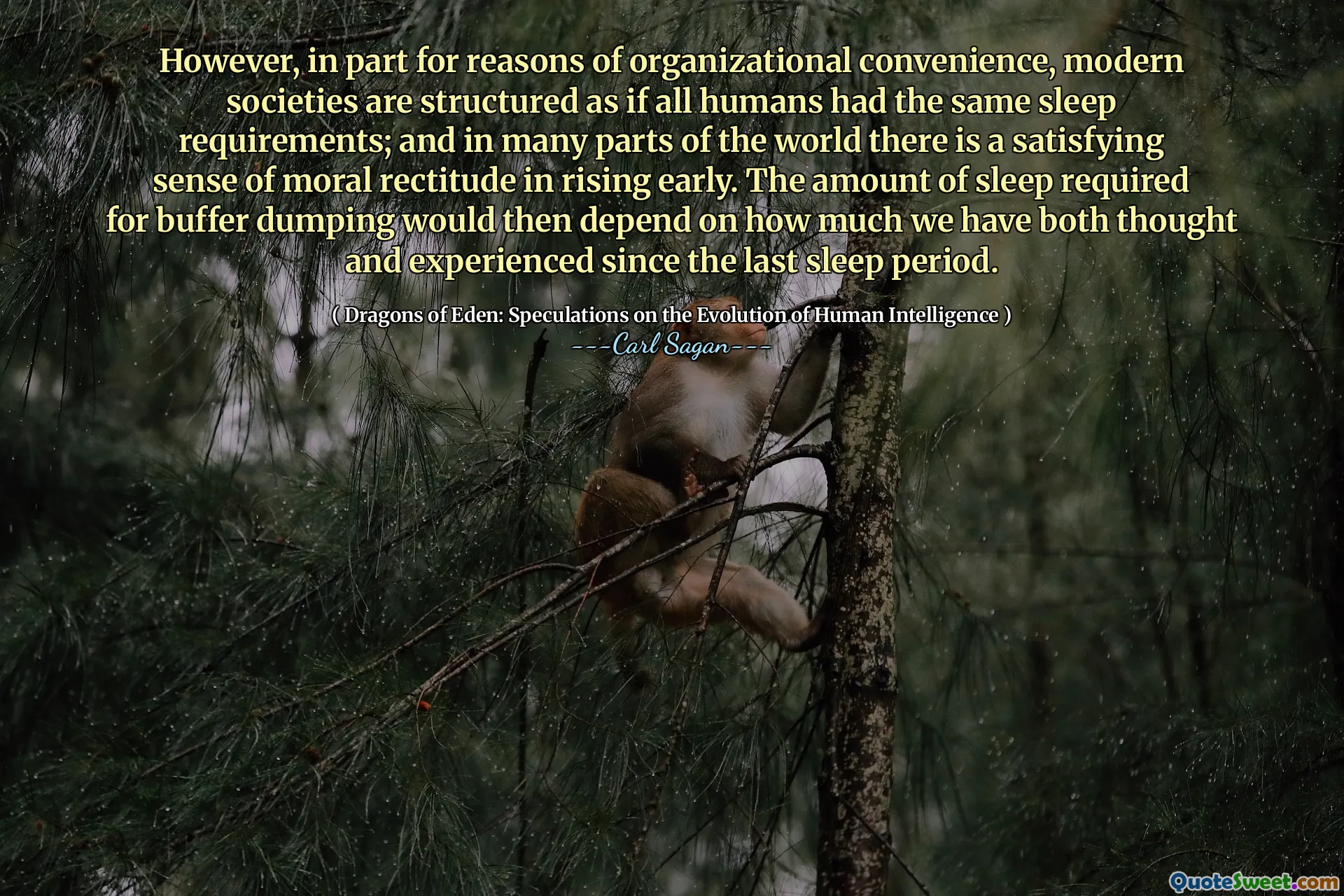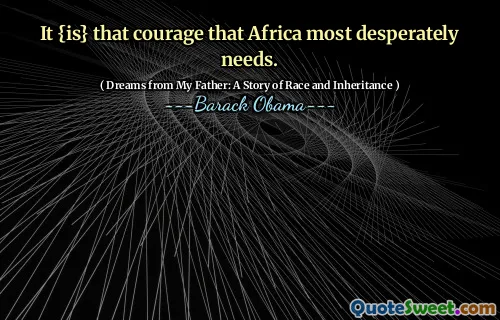
However, in part for reasons of organizational convenience, modern societies are structured as if all humans had the same sleep requirements; and in many parts of the world there is a satisfying sense of moral rectitude in rising early. The amount of sleep required for buffer dumping would then depend on how much we have both thought and experienced since the last sleep period.
[Markdown format]
This quote by Carl Sagan highlights an intriguing intersection between societal norms and individual biological needs. In modern societies, the standardization of daily routines—such as early rising and uniform work schedules—often overlook the diverse emotional, cognitive, and biological factors that influence sleep requirements. It seems society values a certain productivity ethic, equating waking early with moral virtue, regardless of whether it aligns with an individual s natural sleep cycle. This rationalization potentially neglects the profound element of personal variation in how much sleep a person genuinely needs.
Sagan emphasizes that sleep is not merely a passive state but a vital period for processing thoughts and experiences accumulated since the last rest. The metaphor of "buffer dumping" demonstrates how sleep serves as a filter, clearing out cognitive waste and consolidating learning. If we consider that the amount of sleep needed depends on mental activity and emotional experiences, it suggests a dynamic, personalized perspective rather than a one-size-fits-all approach.
Reflecting on this, I realize how societal pressures sometimes undermine our understanding of personal well-being. For instance, in the hustle of modern life, many sacrifice sleep under the guise of productivity, not considering that adequate, quality sleep may be essential for optimal functioning and mental health. The quote subtly advocates for a recognition of individual differences, urging us to value sleep as a dynamic process tied directly to our mental activity.
In essence, Sagan prompts us to reevaluate our assumptions about sleep requirements and invites us to consider how our routines could better reflect the needs of our minds, rather than conforming strictly to societal expectations. It underscores that true productivity and moral integrity might be better served by listening to one's own biological rhythms rather than blindly adhering to societal norms.
---Dragons of Eden: Speculations on the Evolution of Human Intelligence---





